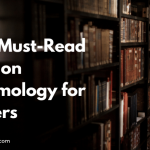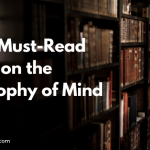Table of Contents
- Introduction
- 1. “Thinking, Fast and Slow” by Daniel Kahneman
- 2. “The Elements of Logic” by Stephen F. Barker
- 3. “An Introduction to Logic” by Irving M. Copi
- 4. “Logic: A Very Short Introduction” by Graham Priest
- 5. “The Art of Thinking Clearly” by Rolf Dobelli
- 6. “A Concise Introduction to Logic” by Patrick Suppes
- 7. “How to Read a Book” by Mortimer J. Adler and Charles Van Doren
- Conclusion
- FAQs
Introduction
Logic isn’t just for philosophers and mathematicians; it’s a crucial skill that can enhance your decision-making, problem-solving, and critical-thinking abilities in everyday life. The way we analyze arguments, evaluate information, and draw conclusions is deeply rooted in our understanding of logic. Below, we’ve compiled a list of the top seven books that can help you sharpen your logical thinking skills. Whether you’re a beginner or looking to deepen your knowledge, these titles are sure to inspire and educate.
“Logic is the beginning of wisdom.” – Unknown
1. “Thinking, Fast and Slow” by Daniel Kahneman
Daniel Kahneman, a Nobel laureate in Economics, offers a profound exploration of how we think. He distinguishes between two systems of thought: System 1, which is fast and intuitive, and System 2, which is slow and deliberative. By understanding these systems, readers can recognize common cognitive biases and improve their reasoning skills. This book is not only insightful but also applicable to everyday scenarios, making it a must-read for anyone looking to enhance their logical thinking.
“The mind is a wonderful servant but a terrible master.” – Robin Sharma
Learn more about cognitive biases here.
2. “The Elements of Logic” by Stephen F. Barker
Stephen F. Barker’s “The Elements of Logic” serves as an excellent introduction to the principles of logical reasoning. Barker covers various types of arguments, fallacies, and the structure of logical statements. The book is well-structured, making it easy for readers to grasp fundamental concepts. It’s an ideal choice for students and anyone interested in improving their analytical skills.
“Good logic is the foundation of good decision-making.” – Unknown
3. “An Introduction to Logic” by Irving M. Copi
Irving M. Copi’s classic, “An Introduction to Logic,” has been a staple in the study of logic for decades. The book provides a comprehensive overview of traditional and modern logic, including formal logic, symbolic logic, and the study of fallacies. Copi’s clear writing and engaging examples make complex ideas accessible. Whether you’re studying for an exam or simply curious about logical principles, this book is a valuable resource.
“To think logically is to think clearly.” – Unknown
4. “Logic: A Very Short Introduction” by Graham Priest
For those who want a concise yet comprehensive overview, Graham Priest’s “Logic: A Very Short Introduction” is perfect. This book delves into the history of logic, its importance in various fields, and its application in daily life. Priest’s approachable style makes complex ideas easy to digest, making it a great starting point for novices.
“Simplicity is the ultimate sophistication.” – Leonardo da Vinci
5. “The Art of Thinking Clearly” by Rolf Dobelli
Rolf Dobelli’s “The Art of Thinking Clearly” addresses cognitive biases and logical fallacies that can cloud our judgment. Each chapter tackles a specific bias, providing real-life examples and practical advice on how to avoid these pitfalls. This book is not just about logic; it’s also a guide to improving overall decision-making skills.
“Clarity of thought is the first step to clarity of action.” – Unknown
Explore cognitive biases further with this insightful article.
6. “A Concise Introduction to Logic” by Patrick Suppes
Patrick Suppes presents a clear and thorough introduction to the subject in “A Concise Introduction to Logic.” The book covers symbolic logic, truth tables, and quantifiers, making it an excellent choice for students of philosophy and mathematics. Suppes also includes exercises to reinforce learning, making it both an educational and practical resource.
“Learning is a treasure that will follow its owner everywhere.” – Chinese Proverb
7. “How to Read a Book” by Mortimer J. Adler and Charles Van Doren
While not exclusively about logic, “How to Read a Book” by Mortimer J. Adler and Charles Van Doren teaches readers how to engage critically with texts. This book emphasizes the importance of analytical reading skills, making it a perfect companion for anyone wanting to improve their logical capabilities. The techniques discussed can help you dissect arguments and evaluate information effectively.
“Reading is to the mind what exercise is to the body.” – Joseph Addison
Conclusion
Improving your logical thinking skills is a journey that can significantly impact your personal and professional life. The books listed above offer a range of perspectives and techniques to help you enhance your reasoning abilities. So grab a book, start reading, and become the sharper thinker you aspire to be!
“The journey of a thousand miles begins with one step.” – Lao Tzu
Also Look For
If you’re interested in exploring further, consider reading about classic literature that delves into philosophical and logical themes. You may find valuable insights in Top 7 Ancient Classics Everyone Should Read Today or Top 7 Must-Read Medieval Literature Classics You Can’t Miss.
FAQs
Q: Why is studying logic important?
A: Studying logic helps improve your reasoning abilities, enhances critical thinking, and allows you to make better decisions by evaluating arguments and claims more effectively.
Q: Can I apply logic to everyday situations?
A: Absolutely! Logic can help you navigate daily decisions, assess information critically, and communicate more effectively.
Q: Do I need a background in philosophy to understand these books?
A: No background is necessary! Most of the books listed are written for a general audience and are accessible to anyone interested in improving their logical thinking skills.
Feel free to explore each of these titles to discover the world of logic and how it can enrich your life. Happy reading!




